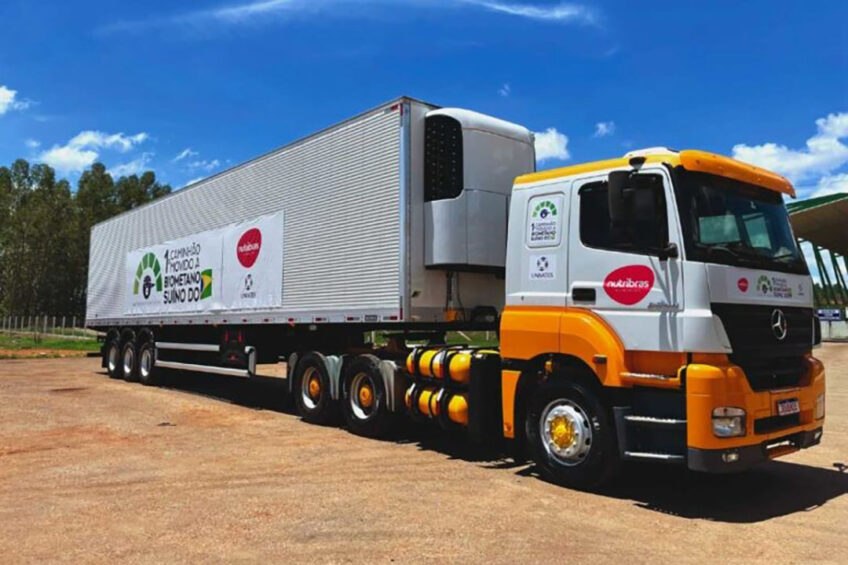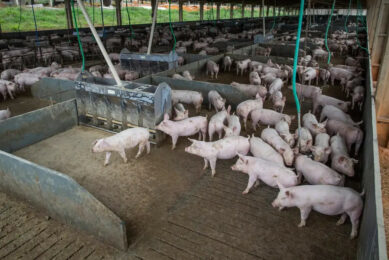Brazilian company presents first truck powered by swine biomethane

Nutribras Alimentos presented the first ever truck powered by biomethane from pig farms at the end of 2021. This achievement was possible thanks to more than 2 decades transforming pig residues into biogas and biofertilisers.
Developed in partnership with Universidade do Vale do Taquari in Rio Grande do Sul state, the project´s main challenge was to purify biogas produced in biodigesters that currently generate energy for company’s facilities.
“Biomethane is one step ahead of biogas. Biogas contains methane, but also other gases that can damage combustion engines. Finally, our prototype was able to purify biogas and reach 96% of methane concentration”, says Jonas Stefanello, technical director of Nutribras Alimentos.
More advantageous
The idea arose when the team realised that potential energy from biogas would be better used as biomethane for vehicle fuel than for electrical energy.
The National Petroleum Agency (ANP) allows vehicles to be fuelled with biomethane and this alternative could be more advantageous both financially and environmentally to Nutribras.
“We developed the whole process to operate within the farm. Hence we found the truck model that operates with vehicular natural gas,” he adds.
Up to 35.000 cubic meters per day
According to Nutribras, the potential of its farms to generate the product is up to 35.000 cubic meters per day.
“That is a lot. To give you an idea, the entire current fleet of the company, including trucks, utility or passenger vehicles, as well as agricultural machinery, would consume 8.000 cubic meters if they were supplied exclusively with biomethane”, compares.
Gaining scale
From now on, the intention is to gain scale with biomethane production at Nutribras’ own facilities.
“Biomethane is better than gasoline and ethanol both for energy efficiency and sustainability. It has infinitely lower greenhouse gas emissions than fossil fuels or even sugarcane ethanol”, he guarantees.
In addition, the biogas purification process can generate other useful by-products, including CO2. According to him, with the most robust and efficient filter system, this input will be studied for use in other activities.
Sustainable practices
Headquartered in Sorriso, in the state of Mato Grosso, the company was also one of the pioneers in Brazil to use biodigesters to reuse pig farm waste in 2001.
From then on, as early as 2004, all its units, which today house 18,000 sows, had biodigesters. In 2005, the practice of fertigation began, which currently covers 3,300 hectares of corn, soybean and bean crops out of a total of 12,000 hectares.











